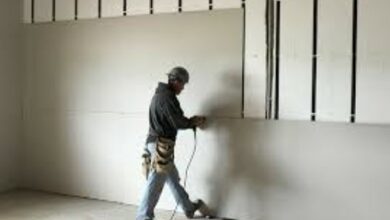How to Choose the Right Plumber for Your Home

Finding the right plumber for your home can be daunting, especially when faced with an urgent plumbing issue.Making the appropriate decision is essential to guaranteeing that your plumbing issues are resolved quickly and effectively. We’ll go over the important things to think about when selecting a plumber so you can make an informed choice that will satisfy your requirements and ensure high-quality work.
Key factors to consider when choosing a plumber
1. Assessing Qualifications and Licensing
One of the first steps in choosing a Rowlett Plumber plumber is verifying their qualifications and licensing. Licenced plumbers have completed the required coursework and complied with local government regulations. This licensing ensures that they are knowledgeable about building codes and regulations. Ask for a plumber’s licence number when corresponding with them, then confirm it with the licencing board in your area. This step is essential for ensuring the plumber is legitimate and has the necessary skills to perform the job correctly. Additionally, check if they have any certifications that indicate further training or specialization in certain areas of plumbing.
2. Evaluating Experience and Track Record
Experience is a critical factor in determining the reliability and capability of a plumber.A skilled plumber has probably dealt with a variety of plumbing problems and come up with workable fixes. When researching potential plumbers, ask how long they have been in business and inquire about their experience with the plumbing issue you are facing. Look for reviews and testimonials from previous clients to understand their track record. Positive feedback and a history of successful projects can provide confidence that the plumber is competent and reliable. It’s also beneficial to ask for references and contact them about their experiences.
3. Checking Insurance and Bonding
Insurance and bonding are crucial for protecting both you and the plumber in case of accidents or damage during the job. A reputable plumber should have both liability insurance and workers’ compensation coverage. Liability insurance protects your property if the plumber causes any damage, while workers’ compensation covers the plumber if injured on the job. Ask for proof of insurance and verify its validity. Bonding provides additional protection by ensuring the plumber completes the job as agreed upon. This financial assurance can give you peace of mind, knowing that you are covered in case of any unforeseen issues.
4. Requesting Detailed Estimates
Before hiring a plumber, it’s important to obtain detailed estimates for the work needed. A comprehensive estimate should include the cost of materials, labor, and additional fees. Be wary of plumbers who provide vague or unusually low estimates, as this could indicate potential hidden costs or subpar work. Request estimates from multiple plumbers to compare pricing and services. This comparison will help you understand the standard rates for the job and ensure you get a fair deal. Additionally, ask about the plumber’s payment terms and whether they require a deposit upfront.
5. Evaluating Communication and Professionalism
Professionalism and effective communication are critical traits for a plumber. From the initial contact, pay attention to how the plumber communicates and whether they are responsive to your inquiries. A professional plumber should be courteous, respectful, and willing to answer your questions. They should also clearly explain the work that needs to be done and any potential challenges. Good communication helps ensure that you and the plumber are on the same page, reducing the risk of misunderstandings and ensuring the job is completed to your satisfaction. Professionalism also includes punctuality and a commitment to completing the job within the agreed timeframe.
6. Assessing Warranties and Guarantees
A reputable plumber should offer warranties or guarantees on their work. These assurances indicate that the plumber stands behind their services and is committed to providing quality work. Ask about the warranties and guarantees offered, including what they cover and how long they are valid. A warranty typically covers the work performed and any materials used, ensuring that if any issues arise after the job is completed, the plumber will address them at no additional cost. Understanding the terms of these warranties and guarantees can provide peace of mind and protect you from potential future expenses.
Read also: Real Estate Services: Facilitating Transactions and Enhancing Property Value
7. Considering Availability and Response Time
Plumbing issues can occur anytime, and quick response is often crucial to preventing further damage. When choosing a plumber, consider their availability and response time, especially for emergencies. Inquire about their hours of operation and whether they offer 24/7 emergency services.A plumber who can get to you quickly in an emergency can prevent expensive repairs and major damage. Ask about their typical response time for calls that are not emergencies. A reliable plumber should be able to schedule an appointment within a reasonable timeframe and arrive promptly to assess and address the problem.
Conclusion
Choosing the right plumber for your home involves considering various factors, including qualifications, experience, insurance, estimates, communication, warranties, and availability. By thoroughly evaluating these aspects, You are able to make an educated choice that guarantees expert and high-quality plumbing service for your demands. Researching and selecting a reputable plumber will provide peace of mind, knowing that your home’s plumbing system is in capable hands. Whether you are dealing with a minor issue or a major emergency, finding the right plumber is essential for maintaining the safety and functionality of your home.








